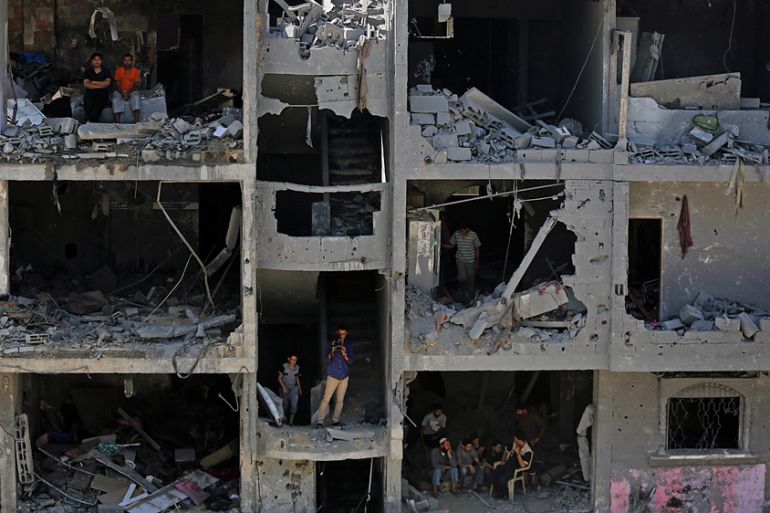A symbolic act
The story of Imad Abu Shakra is emblematic of the struggle for sovereignty.

Imad Abu Shakra was only 17 on the 63rd anniversary of the Nakba, the catastrophe which created the Palestinian refugee problem. Born in Lebanon’s largest Palestinian refugee camp in Ein al-Hilweh, Abu Shakra spent May 14, 2011 visiting friends and paying back small debts he owed to a neighbour. His mother said that he kept on hugging and kissing her. He said he would miss her.
At dawn on May 15, 2011, Abu Shakra washed, carried out his morning prayers and headed with a friend for the buses taking protesters to Ras Marron, the nearest Lebanese town to the border with Israel. The buses were full, so he took a taxi and walked the remaining distance to the fence. He climbed it and hoisted the Palestinian flag on top. During the climb, Israeli soldiers, clearly not in any danger, shot him twice in the shoulder and chest but he survived. He died at the highest point of the fence when a fatal shot hit his heart.
Keep reading
list of 4 itemsPhotos: Pro-Palestinian protests spread at US universities
Injured Gaza 1-year-old suffers 200 facial stitches and hand amputation
Hamas video of Gaza captive Hersh Goldberg-Polin triggers Israel protests
United Nations vote
|
|
|
Any attempt to bring back the case of Palestine to centre stage is welcomed.
|
The story of Abu Shakra is part of a series of personal biographies of Palestinian martyrs from Lebanon documented by the Yasour media group.
RELATED: Horror and fear in Gaza after Egypt floods tunnels
Abu Shakra’s act follows hundreds, if not thousands, of Palestinians who have died attempting to carry out the symbolic act of reminding the world that Palestine exists and that its people yearn for freedom and independence. The United Nations recently voted overwhelmingly, 119-8 with 45 abstentions, to allow the raising of the flags of the UN’s two non-member states: Palestine and the Vatican.
Israel’s ambassador to the UN, Ron Prosor, said: “No vote, can turn empty symbolic gestures into a state,” but he ignores the fact that it is Israel’s military force that is continuing the illegal occupation and denying Palestinians the inalienable right of determining their own future.
The US ambassador, Samantha Power, similarly opposed the vote. The US was one of eight to vote no. She said that raising the Palestinian flag “is not an alternative to negotiations and will not bring the parties closer to peace“.
The last time Israelis and Palestinians held negotiations, it was the Israelis who blew up the talks. US Secretary of State John Kerry used the expression “poof” when explaining how the nine-month-long talks went up in smoke when the Israelis reneged on their agreement to release long-term prisoners and began building illegal settlements.
For a people desperate for a breakthrough in the decades-old conflict, any attempt to bring the case of Palestine back to centre stage is welcomed. Officials, as well as ordinary Palestinians, welcomed the UN vote at a time when the world is closely following the Syrian refugee crisis and bloody conflicts in Yemen, Libya, and Iraq.
Little promise
Welcoming a symbolic decision in the UN doesn’t and shouldn’t blind Palestinians from realities both near and far. Although the Israelis are shedding tears about the refugee crisis in Europe, Palestinian refugees from Syria have been denied permission by Israel to come and live in the West Bank despite a public welcome by Palestinian President Mahmoud Abbas.
In Gaza the multiyear siege continues unabated, and frustration levels now have UN officials concerned that the strip might be “uninhabitable“ by 2020. And while Israel bears the largest responsibility for the situation in Gaza, there is plenty of blame to be spread to the main Palestinian political/military powers Hamas and the Palestine Liberation Organization, as well as Egypt, which has kept the Rafah borders closed for almost an entire year.
On September 30, Abbas will raise the Palestinian flag outside the New York headquarters of the UN. The move might be symbolic, as is much of the trappings of the Palestinian government in Ramallah. Without sovereignty and the ability to control land, Palestine’s future holds little promise.

In the days and weeks after the shooting of Imad Abu Shakra, Palestinian families who welcomed newborn children into their homes gave their sons the name Imad. His actions are a symbol for the sovereign, independent, and democratic state that Palestinians are dying for.
Daoud Kuttab, an award-winning Palestinian journalist, is a former Ferris professor of journalism at Princeton University.
The views expressed in this article are the author’s own and do not necessarily reflect Al Jazeera’s editorial policy.
